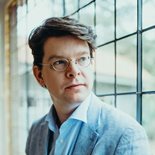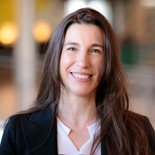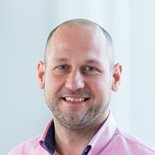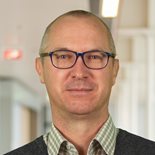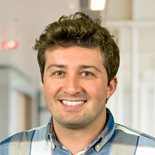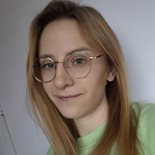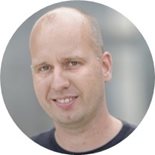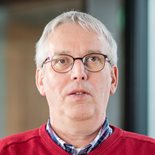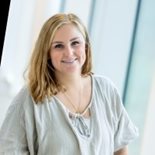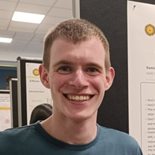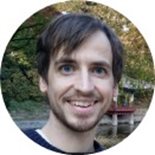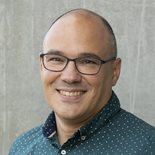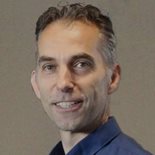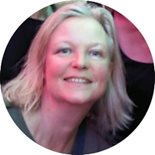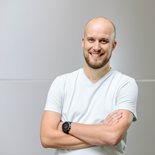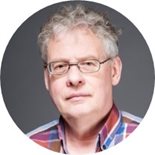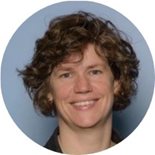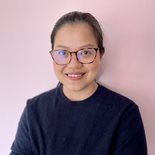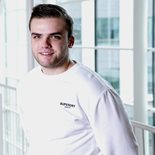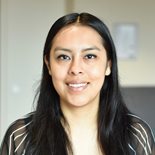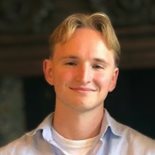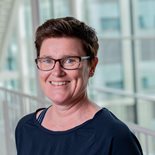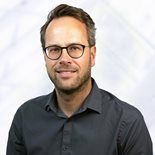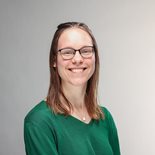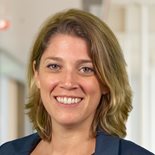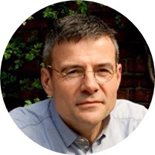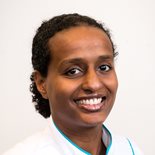Core PIs
Camiel Boon
About me
I am a clinician-scientist, working as an eye doctor and researcher. My research motto is: ‘From bedside to bench, and back’. The highlight of my career thus is without a doubt that I was able to perform some of the first-in-human gene therapy eye surgeries at Amsterdam UMC.
Your contribution to Lifelong VISION
As a doctor, the specific expertise that I bring to Lifelong VISION is a translational view, with an emphasis on novel gene therapy techniques (gene replacement, CRISPR-based techniques) in a multidisciplinary setting. In addition, my aim is to develop better insights into the most sensitive clinical endpoints to assess disease progression and treatment efficacy in patients. I am a team player, enjoying crosstalk and close collaboration between disciplines. This makes Lifelong VISION the perfect stimulating research environment for me and my research group.
Clarisa Sánchez
About me
I am a Full Professor of AI and Health at the University of Amsterdam and Amsterdam UMC, dedicated to transforming patient care through responsible, cutting-edge AI technologies. My research focuses on developing, validating, and integrating AI methodologies to tackle medical data challenges across the patient pathway.
Your contribution to Lifelong VISION
Over the past 20 years, my research has advanced machine learning models for analyzing and interpreting clinical data to enhance patient care. In Platform B, I will leverage this expertise to untangle structural and functional multimodal data, identifying disease signatures that enable precise, timely, and personalized treatment for each patient.
Consortium members
Alex Garanto
About me
I obtained my PhD from the University of Barcelona, where I investigated the function of a gene involved in inherited retinal diseases. After two postdoctoral positions, I started my own group at Radboudumc, where we focus on developing (personalized) molecular therapeutic interventions for neurometabolic and retinal rare disorders, for which, unfortunately, no effective treatment is available. Furthermore, my group also generates (personalized) iPSC-derived cellular models that are crucial for antisense technology and genome editing.
Your contribution to Lifelong VISION
Genetic therapies are advancing rapidly; however, animal models are not always suitable for assessing efficacy. iPSC technology has enabled researchers to reprogram fibroblasts or blood cells into pluripotent stem cells, which can then be differentiated into almost any cell type. In particular, my group will contribute in Platform A by developing functional readouts in complex iPSC-derived models (retinal organoids and retina-on-a-chip) for inherited retinal diseases. These functional readouts will be used to study disease mechanism and evaluate therapeutic strategies.
Amber Teppema
About me
During my last years I’ve worked with and cultured a lot of organoids. With this expertise, I recently joined the Ocular Angiogenesis Group to work on the Lifelong VISION project. I believe that good health and vision should be a priority for everyone.
Contribution to Lifelong VISION
With my knowledge I hope to contribute to the research and the innovative solutions in macular diseases within Platform A of the project, so that we will get a better understanding about the mechanisms of these blinding diseases.
Andries van der Meer
About me
Andries van der Meer heads a research group on innovative microengineered tissue culture models known as ‘organs-on-chips’. Van der Meer is the president of the European Organ-on-Chip Society (EUROoCS). He also served as chair of the Focus Group on Standardization for Organ-on-Chip of the European standardization body CEN CENELEC. He is a leading international proponent of standards-driven innovation in the field of organs-on-chips. Before joining the University of Twente in 2015, Dr. Van der Meer worked as a Senior Research Fellow at Harvard Medical School and the Wyss Institute of Harvard University, Cambridge, MA, USA. He has a Ph.D. in Biomedical Engineering (University of Twente, 2010), and a M.Sc. in Biology (University of Groningen, 2005).
Your contribution to Lifelong VISION
Van der Meer is actively working on advanced tissue culture models of the retina, known as ‘retina-on-a-chip’ models. He is one of the leading team members in the consortium’s Platform A ‘Model Systems’. He brings extensive experience from his roles in the hDMT Dutch Human Organ and Disease Model Technologies Organ-on-Chip consortium, the European Organ-on-Chip Society, and the European CEN CENELEC Focus Group on Standards for Organs-on-Chips. Van der Meer’s contributions will be crucial in advancing innovative therapeutic solutions for vision loss by driving the creation of robust model systems for testing treatments.

Bert Janssen
Professor Molecular mechanisms of intercellular signalling Utrecht University
read moreBert Janssen
About me
As a structural cell biologist at Utrecht University, I zoom in into the inner workings of our cells. We visualize how cells interact and communicate and show what goes wrong in disease.
Your contribution to Lifelong VISION
My group aims to find new ways to treat the eye disease age-related macular degeneration (AMD) and develop new tools to find out the cause of this disease. Lifelong VISION provides an excellent environment with broad expertise to translate our fundamental science to applied research.
Bert van den Heuvel
About me
Bert van den Heuvel is professor and head of the laboratory research group from the department of Pediatric Nephrology both at the Radboudumc and Catholic University Leuven, Belgium. His main research interests are tubular transport defects, extracellular matrix and renal pathology, nephrogenesis and hyperfiltration, the pathogenesis of the hemolytic uremic syndrome, complement-mediated disorders, cystinosis and mitochondrial (renal) disorders. The expertise of his group consists of collection of urine and/or tissue specimens from patients and controls, molecular genetic analysis, differential gene expression analysis, proteomics analyses, immunodissection, establishment of primary cell cultures (from body fluids and tissues), (conditional) immortalization of cell lines, immunohistology studies by laser scanning microscopy (CLSM) and structural and/or functional characterization of cultured cells plus tissues.
Your contribution to Lifelong VISION
Bert van de Heuvel has extensive expertise in the analysis of complement (activation) proteins, and he has already worked together in close collaboration with the Ophthalmology group in Radboudumc to study the involvement of the complement system in the progression of AMD. He will be involved in Pillar 2.
Céline Koster
About me
I completed my PhD in the section of Ophthalmogenetics at the Amsterdam University Medical Centers in 2022. During my PhD project, I worked on the development of differentiation protocols from stem cells towards retinal pigment epithelium cells, the development of new animal models for retinal degenerative diseases and phenotyping strategies of these preclinical models. Currently, I work as a postdoctoral researcher at the Amsterdam UMC and test experimental therapies for retinal degenerative diseases, including stem cell-derived tissue transplantation and gene therapy approaches in preclinical models.
Contribution to Lifelong VISION
My expertise is crucial in testing experimental therapies in representative and robust preclinical models in Platform A.
Damian Kevelam
About me
I am a PhD candidate at Utrecht University, supervised by Dr Bert Janssen. My interests are in structural biology and protein chemistry, especially in understanding how a protein’s structure and chemical properties influence its molecular interactions.
Contribution to Lifelong VISION
As part of Pillar 2, my project focuses on the role of the complement system in age-related macular degeneration. I aim to develop and characterize targeted inhibitors, such as nanobodies and computationally designed binder proteins, to modulate complement activity in the retina.

Enrico Mastrobattista
Professor Pharmaceutical Biotechnology & Delivery Utrecht University
read moreEnrico Mastrobattista
About me
Enrico Mastrobattista is a professor at the Pharmaceutics division at Utrecht University. He is an expert on the design and preclinical testing of non-viral delivery systems for proteins, peptides and nucleic acids, with a particular emphasis on nanomedicines.
Your contribution to Lifelong VISION
Being part of pillar 1, I will develop synthetic delivery systems that can target gene editing tools, including CRISPR-Cas9 and prime editors, into the posterior segment of the eye after intravitreal or subretinal injection.
Erik Bekkers
About me
I am an associate professor in Geometric Deep Learning at the University of Amsterdam, specializing in symmetry-preserving and structure-aware machine learning methods. My research focuses on developing geometric deep learning techniques for medical imaging and the sciences, leveraging differential geometry and AI to improve data-driven analyses.
Your contribution to Lifelong VISION
I contribute in Platform B my expertise in geometric deep learning, generative modelling, and AI-driven biomarker research, as to enable robust and data-efficient medical image analysis. My work focuses on developing structure-preserving machine learning methods that enhance quantitative imaging, facilitating precision diagnostics and treatment personalization.
Erwin van Wijk
About me
I started working at Radboudumc in 2001. My field of study is to (a) better understand and (b) develop effective genetic therapies for otogenetic disorders and Usher syndrome.
Contribution to Lifelong VISION
I contribute to Pillar 1 and Pillar 2 by bringing expertise in proteomics techniques in order to unravel pathogenic mechanisms underlying IRDs, generating and characterizing zebrafish IRD models for basic scientific and translational purposes, and ample experience in developing splicing modulating treatments using antisense oligonucleotides (RNA) or CRISPR/Cas9 (DNA) for the future treatment of IRDs.
Fred de Winter
About me
I am trained as a molecular neurobiologist. Currently, I work in the Netherlands Institute for Neuroscience where I execute the “Gene Therapy” research line of the Neuroregeneration group.
Your contribution to Lifelong VISION
With over 20 years of experience in the field of gene therapy, I will contribute to Pillar and deliver my expertise on viral vector technology and the effective use of viral gene therapy vectors to gain biological understanding of, and to develop treatments for, retinal diseases.
Ingeborg Klaassen
About me
I joined the department of Ophthalmology, Ocular Angiogenesis Group as a postdoc in 2002 and now lead the group as PI, focusing on retinal vascular diseases like diabetic retinopathy and AMD.
Your contribution to Lifelong VISION
I firmly believe that our collaborative efforts on this project will accelerate our understanding of the mechanisms behind blinding eye diseases and lead to new treatments. I will contribute my expertise in basic retinal research in Pillar 2 and the development of in vitro models in Platform A of lifelong VISION.
Ivar Noordstra
About me
After working as a postdoctoral research fellow at the University of Queensland, Australia (2018-2024), I joined the Human Genetics department of the Radboudumc Nijmegen in February 2025.
Contribution to Lifelong VISION
I bring expertise in molecular cell biology, with a focus on cytoskeletal dynamics and mechanobiology. Additionally, I have established various zebrafish model systems to study regeneration of the retina using advanced ablation and imaging methodologies. Within Lifelong VISION Platform A, I will coordinate the zebrafish platform to support both fundamental research and translational applications.
Joost Verhaagen
About me
Joost Verhaagen is team leader and emeritus professor Netherlands Institute for Neuroscience, Department of Neuroregeneration, Amsterdam, The Netherlands. I study ways to repair the injured central nervous system, including the retina. Working mostly in the field of gene therapy with a recent focus on minimally-invasive and cell-selective gene targeting.
Your contribution to Lifelong VISION
My laboratory specialises in adeno-associated viral vector development and applications aiming to cell-selectively target therapeutic genes to the injured CNS using minimally-invasive approaches. This toolbox of technologies will be available to LLV’s efforts under Pillar 1 to treat retinal diseases by gene therapy.
Karin van Garderen
About me
Karin van Garderen is a postdoctoral researcher specializing in medical image analysis and AI, working at the department of Ophthalmology, Erasmus MC. Finished her PhD in 2024 at the same institute, department of Radiology and Nuclear Medicine.
Contribution to Lifelong VISION
I have been working at the intersection of medical and technological research since 2018, with the goal to provide insight to medical practitioners using data analysis and AI. In LifeLong vision my task is to bring the multidisciplinary data from different sources together in Platform B, and to develop new methods for patient profiling.
Koen Haak
About me
As Associate Professor in the Department of Cognitive Science and Artificial Intelligence,I lead the Vision and Imaging Data Analytics group. We develop and apply advanced data-analytical approaches to study how eye diseases and brain injuries impact our ability to see in daily life, and how this might be improved.
Contribution to Lifelong VISION
I lead the neuroimaging work-package of Platform B. The aim is to develop novel, MRI-based biomarkers to facilitate stratification and monitoring. By focusing on the visual brain, we aim to bridge between the restoration of visual signals at the level of the retina and the ability of patients to use these signals in daily life.
Magda Smoor
About me
I am an Assistant Professor in the Eye Epidemiology group at Erasmus MC, specializing in genetic and biomolecular research on age-related macular degeneration (AMD). In addition to my research, I manage large national, international, and personal grants.
Your contribution to Lifelong VISION
Within Lifelong VISION, I serve as the link to the RD5000 consortium, for which I manage the national registry and research database. Furthermore, I contribute expertise in AMD, particularly in genetics, complement biology, and lipid metabolism.
Additionally, as a member of the Project Support Office, I co-manage Lifelong VISION, ensuring the project's strategic and operational success.
Minh Nguyen
About me
I am a biomedical scientist with a PhD in systems biology, specializing in ciliopathies, and have transitioned into data science to apply computational approaches to biomedical research. My experience spans academia and industry, combining wet lab expertise with bioinformatics and machine learning for data-driven insights.
Your contribution to Lifelong VISION
I bring expertise in multi-omics data analysis, including RNAseq and proteomics, to uncover molecular mechanisms underlying genetic retinal diseases. My experience in developing scripts for large-scale cilia phenotyping and analyzing proteomics data enables me to optimize cilia phenotyping in a diagnostic setting and build a robust in-house protein interaction database. With a strong background in both bioinformatics and wet lab molecular biology, I bridge experimental and computational approaches to advance research in genetic retinal diseases.
Niels van Dillen
About me
I am a highly motivated PhD student with a keen interest in immunology, specifically the complement system. My passion for this field began during my graduation, where I investigated the role of the complement system within the context of kidney diseases. Following my graduation, I worked as a research technician, focusing on unravelling the complex involvement of the complement system in Age-related Macular Degeneration (AMD). With this diverse background, I am excited to continue my research as a PhD student and contribute to advancing our understanding of the complement system’s role in eye diseases.
Your contribution to Lifelong VISION
My PhD project falls under Pillar 2 and focuses on pathway-based therapies, with an emphasis on the complement system. Supervised by Prof. Dr. Bert van den Heuvel and Prof. Dr. Caroline Klaver, our research aims to decipher the complement profiles of AMD patients. We will investigate the mechanisms of action of complement factors using morphological and functional readouts in iPSC-derived cells from AMD patients with specific genetic variants. Additionally, we will test newly developed complement-targeting nanobodies in these patient-derived models.
Paola Serrano Martinez
About me
I joined the Ocular Angiogenesis Group of the Department of Ophthalmology in 2021. My postdoctoral research focuses on the study of vascular dysfunction in ocular diseases, such as age-related macular degeneration.
Contribution to Lifelong VISION
My expertise in complex in vitro vascular models, such as stem cell-derived vascular organoids, would contribute to the joint effort of Lifelong VISION for building up a model of the back of the eye to screen targeted therapies in Platform A.

Patricia Dankers
Professor in Biomedical Materials & Chemistry Eindhoven University of Technology
read morePatricia Dankers
About me
Patricia Dankers is a professor in Biomedical Materials & Chemistry. Dankers leads a research group that aims at pursuing grand challenges in biomedical science, and in particular in the field of regenerative medicine, using a materials approach. Targeting the cell-material interface using supramolecular chemistry is one of the main research directions.
Your contribution to Lifelong VISION
Our group contributes to Pillar 3 through development of different functional materials to steer retinal cells.
Rens Hoekstra
About me
I am a PhD student at the Radboudumc and I am an enthusiastic researcher with a strong interest in molecular biology and the genetic mechanisms driving disease. My aspiration is to use this knowledge to develop innovative therapies for diseases that are currently considered incurable. During my study in Biomedical Sciences, I acquired a solid foundation in molecular genetics and the molecular mechanisms of disease. In addition, I gained valuable experience using zebrafish as a model organism to explore and develop genetic therapies for inherited retinal diseases.
Your contribution to Lifelong VISION
My PhD project in Pillar 2 will primarily focus on the ability of zebrafish to regenerate their damaged retina. This project will be supervised by Dr. Erwin van Wijk and Prof. dr. ir. Ronald Roepman, and our goal will be to identify potential molecular targets for retinal regeneration therapy in humans.
Roland Brock
About me
I am Group leader Targeted Nanomedicines that aims to understand and develop drug delivery strategies for RNAs and to apply these nanomedicine strategies in a clinical context.
Contribution to Lifelong VISION
In Pillar 1 we contribute to optimizing drug delivery. Activities in my group range from the synthesis and formulation of bioactive molecules to the detailed analysis of cellular activity using advanced microscopy to ex vivo (patho-)physiological models with which we aim to make significant contributions to various disease areas.
Simone Dusseljee
About me
Since 2010, I have been a dedicated project manager overseeing various national and international research projects. My skills ensure smooth coordination and successful completion of complex, multidisciplinary projects, fostering innovation and collaboration within the scientific community.
Your contribution to Lifelong VISION
As a member of the Project Support Office, I am committed to effective coordination and execution, ensuring that the Lifelong VISION project is not only completed efficiently but also achieves impactful results.
Stephan Huveneers
About me
I lead the Vascular Microenvironment and Integrity lab. My research focuses on the molecular mechanisms of endothelial cell adhesions and mechanotransduction in vascular biology.
Contribution to Lifelong VISION
The Huveneers lab studies angiogenesis using advanced fluorescence microscopy applied in 2D and 3D cultures and in in vivo models. His expertise in cell-cell and cell-ECM interactions in vascularized tissue will benefit the cellular research within Pillar 3 of Lifelong Vision.
Sterre Mulder
About me
I am a PhD candidate at the Radboud UMC, driven by a deep curiosity about the human body, on both the cellular and the organ level, and by a passion to improve patients’ lives. With a bachelor’s in Biomedical Sciences at Leiden University and a master’s in Molecular Mechanisms of Disease at Radboud University, I am well-equipped to start groundbreaking research. During several internships, I have learnt a lot about immunology and infectious diseases. Now, as a PhD candidate, I am excited to enter the field of inherited retinal diseases and hopefully make a meaningful impact on health care.
Your contribution to Lifelong VISION
My project is under the supervision of prof. Rob Collin and Dr. Susanne Roosing. As a part of Pillar 1, we aim to identify and develop novel therapeutics for inherited retinal diseases, using molecular technologies at the level of nucleic acids. Potential therapies will be tested in iPSC-derived retinal organoids.
Susanne Roosing
About me
I started at the Radboudumc in 2007. After my PhD (2010-2014) at Radboudumc, a post-doc at Rockefeller University (New York, USA, 2014-2016), I started my own research group ‘Blindness Genomics and Transcriptomics’ in 2016.
Contribution to Lifelong VISION
My expertise resides in the field of inherited retinal disease gene discovery. Using state of the art short and long reach sequencing approaches my team and I uncover new genetic causes underlying retinal disease. In Pillar 1, we contribute to identifying ultra rare variants in known or newly identified inherited retinal disease genes suitable for development of a genetic treatment.
Theo Smit
About me
My research focus is on the role of mechanics in biology, in particular embryonic development, growth, disease and repair.
Contribution to Lifelong VISION
In Pillar 3, a cellular therapy for age-related macula degeneration is developed. To support the differentiation of iPS cells into retinal epithelial cells, an electrospun scaffold of supramolecular polymers is required. Furthermore, translation of the basic technology into an advanced therapeutic medicinal product (ATMP) is required.
Yara Lechanteur
About me
I have been working on AMD related research for over 10 years. My current expertise is in diagnostics of the complement system and early-onset age-related macular degeneration.
Your contribution to Lifelong VISION
I am the principal investigator of a large case-control database (>2000 AMD patients and healthy controls) with extensive phenotypic and genetic data. Our work on complement diagnostics at Radboudumc will provide leads for therapy development within the consortium.
Zohreh Hosseinzadeh
About me
I am Group Leader of Cell Biology of Vision, developing functional organoids derived from iPSCs of both healthy individuals and patients, leveraging cutting-edge technologies such as electrophysiology, advanced materials, and molecular biology. These organoids replicate the structure and function of the retina and are used to model retinal diseases.
Contribution to Lifelong VISION
I lead platform A which is dedicated to improving and establishing clinically relevant retinal models representing human retinal health and disease.


